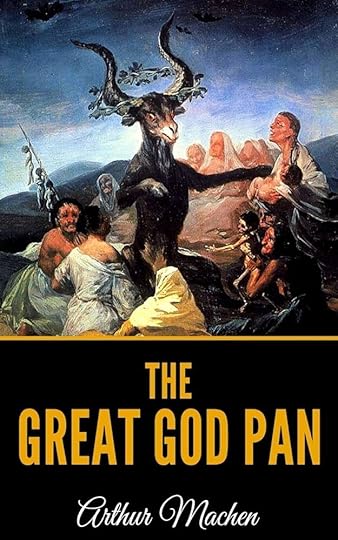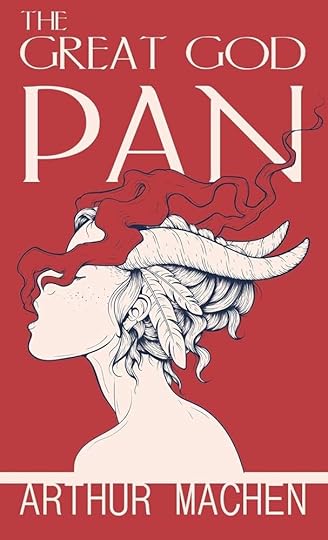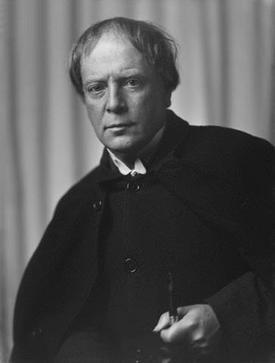From Supernatural Horror to Philosophical Discourse: The Enduring Impact of Arthur Machen’s “The Great God Pan
Arthur Machen’s “The Great God Pan” is a cornerstone of supernatural horror, weaving an intricate tapestry that challenges readers’ perceptions of reality and the unknown.
This novella deftly explores the interplay between ancient deities and the forbidden knowledge they embody, pushing the boundaries of human comprehension and plumbing the dark aspects of human nature. Machen’s work does not merely serve as a chilling tale; it prompts profound philosophical discourse on the nature of existence itself (a notion that resonates with both horror enthusiasts and scholars alike).
By examining how Machen seamlessly integrates elements of supernatural horror with existential questioning, we can appreciate his enduring impact on both literary and philosophical landscapes. Join me as we delve into this masterpiece, uncovering its layers and the enduring questions it poses about the world around us.
 Exploring Ancient Deities
Exploring Ancient DeitiesMachen’s novella prominently features ancient deities, particularly Pan, as a symbol of nature’s primal and mysterious forces. These deities represent a world beyond human comprehension—a realm where the divine intersects with the mundane. In “The Great God Pan,” Pan is not merely a mythical figure; he embodies the chaos and unpredictability of nature itself.
Machen uses Pan to symbolize the untamed and often terrifying aspects of existence.The presence of such deities questions the boundaries between the known and the unknown.Incorporating ancient mythology, Machen emphasizes humanity’s enduring fascination with the divine.This fascination with ancient deities is not merely decorative; it serves to deepen the narrative’s psychological impact, inviting readers to ponder the limits of their understanding and the potential for unseen forces to influence their world.
Forbidden Knowledge and Its ConsequencesThe pursuit of forbidden knowledge is a central theme in “The Great God Pan.” Machen explores the idea that some truths are beyond human capacity to grasp without dire consequences. This theme is vividly illustrated through the novella’s plot, where characters’ reckless pursuit of hidden truths leads to catastrophic outcomes.
Knowledge is portrayed as a double-edged sword—offering enlightenment but at great cost.The narrative suggests that certain mysteries should remain unsolved to preserve human sanity.Machen warns of the potential for knowledge to corrupt and destroy.By presenting forbidden knowledge as both alluring and dangerous, Machen crafts a cautionary tale about the limits of human ambition and the peril of overstepping natural boundaries.
 Dark Aspects of Human Nature
Dark Aspects of Human NatureMachen’s exploration of the dark aspects of human nature reveals a deep understanding of humanity’s complexities. The novella examines how hidden desires and unconscious urges drive individuals toward actions that defy societal norms.
The narrative uncovers the shadowy parts of the psyche that are often repressed or ignored.Machen challenges readers to confront the duality of human nature—where evil and good coexist.In doing so, he invites contemplation about the true nature of morality and ethics.This exploration of darkness within human nature is not just for titillation; it serves to underscore the novella’s philosophical undertones, prompting readers to question their own psychological depths.
Questioning Reality and Existence“The Great God Pan” is as much about questioning reality as it is about horror. Machen’s narrative blurs the lines between what is real and what is imagined, inviting readers to reconsider the nature of existence itself.
Reality is depicted as a malleable construct, subject to perception and interpretation.The novella suggests that what is perceived as reality may be an illusion or a façade.Through his narrative, Machen challenges the reader to explore the limits of consciousness and perception.By intertwining supernatural horror with philosophical inquiry, Machen creates a narrative that is both unsettling and intellectually stimulating, encouraging readers to delve into the metaphysical questions of their own existence.
 Influence on Supernatural Horror Genre
Influence on Supernatural Horror GenreMachen’s impact on the supernatural horror genre is profound and far-reaching. His blending of myth, psychology, and horror has influenced countless writers and shaped the evolution of the genre.
Machen’s storytelling laid the groundwork for modern horror, emphasizing atmosphere and psychological depth.Authors like H.P. Lovecraft have cited Machen as a significant influence on their work.The novella’s themes of fear and the unknown remain staples of contemporary horror narratives.By pioneering a complex and layered approach to horror, Machen’s work continues to resonate, ensuring his place in the pantheon of great horror authors.
Machen’s Role in Philosophical HorrorMachen’s integration of philosophical themes into his horror narratives has also cemented his role in what can be termed philosophical horror. Through his probing of existential questions, he transcends genre limitations.
Machen’s work encourages readers to engage with philosophical discourse while experiencing the visceral impact of horror.His narratives prompt reflection on broader existential and metaphysical themes.By merging horror with philosophy, Machen offers a unique reading experience that challenges and enlightens.In doing so, Machen has established himself not only as a master of horror but also as a thinker whose work continues to inspire philosophical exploration.



